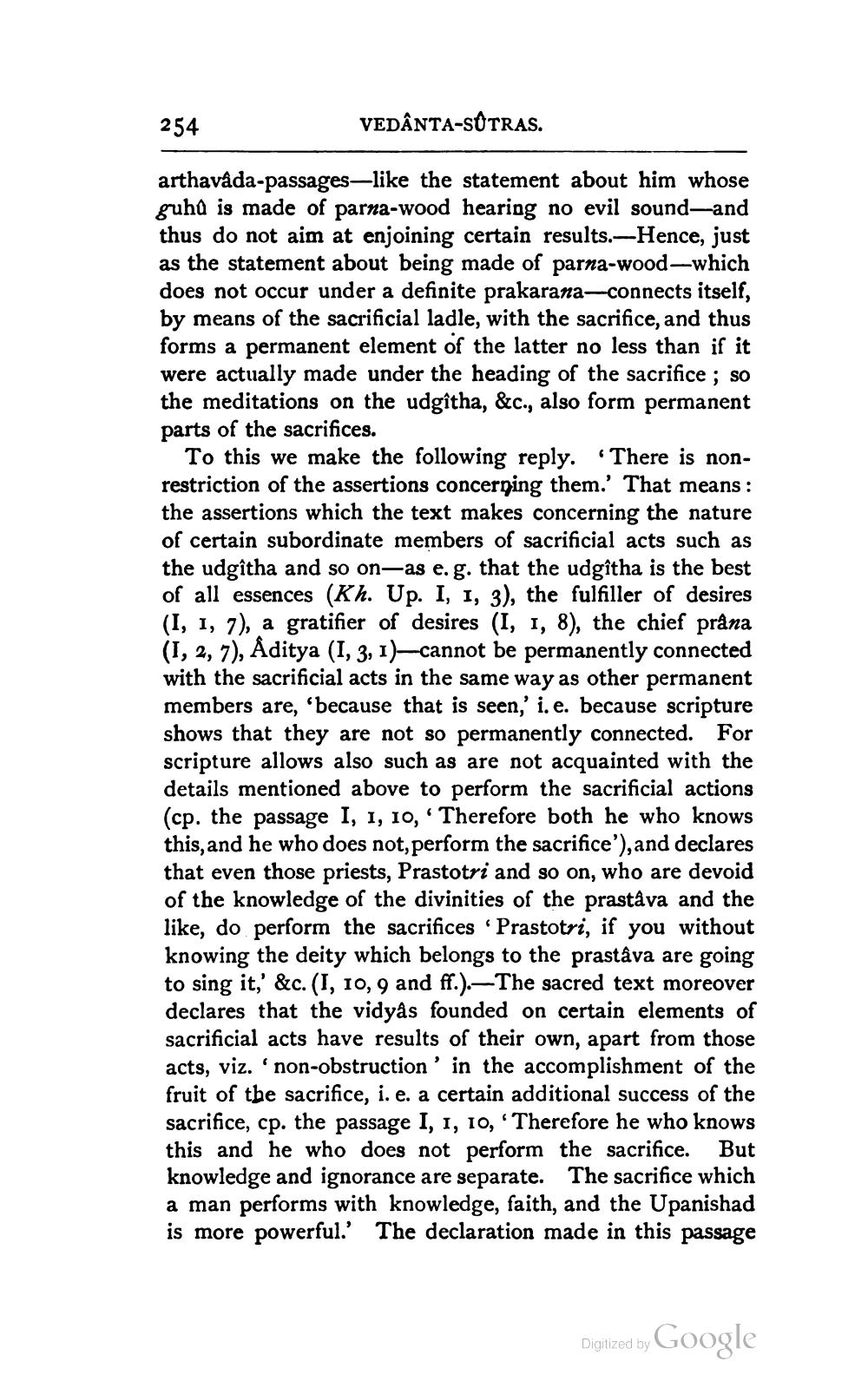________________
254
VEDÂNTA-SOTRAS.
arthavada-passages—like the statement about him whose guhů is made of parna-wood hearing no evil sound-and thus do not aim at enjoining certain results. Hence, just as the statement about being made of parna-wood-which does not occur under a definite prakarana-connects itself, by means of the sacrificial ladle, with the sacrifice, and thus forms a permanent element of the latter no less than if it were actually made under the heading of the sacrifice ; so the meditations on the udgîtha, &c., also form permanent parts of the sacrifices.
To this we make the following reply. There is nonrestriction of the assertions concerning them.' That means : the assertions which the text makes concerning the nature of certain subordinate members of sacrificial acts such as the udgîtha and so on-as e.g. that the udgîtha is the best of all essences (Kh. Up. I, 1, 3), the fulfiller of desires (I, 1, 7), a gratifier of desires (I, 1, 8), the chief prâna (1, 2, 7), Aditya (1, 3, 1) cannot be permanently connected with the sacrificial acts in the same way as other permanent members are, because that is seen,' i.e. because scripture shows that they are not so permanently connected. For scripture allows also such as are not acquainted with the details mentioned above to perform the sacrificial actions (cp. the passage I, 1, 10, Therefore both he who knows this, and he who does not, perform the sacrifice'), and declares that even those priests, Prastotri and so on, who are devoid of the knowledge of the divinities of the prastáva and the like, do perform the sacrifices 'Prastotri, if you without knowing the deity which belongs to the prastáva are going to sing it,' &c. (I, 10, 9 and ff.).—The sacred text moreover declares that the vidyas founded on certain elements of sacrificial acts have results of their own, apart from those acts, viz. 'non-obstruction' in the accomplishment of the fruit of the sacrifice, i.e. a certain additional success of the sacrifice, cp. the passage I, 1, 10, 'Therefore he who knows this and he who does not perform the sacrifice. But knowledge and ignorance are separate. The sacrifice which a man performs with knowledge, faith, and the Upanishad is more powerful.' The declaration made in this passage
Digitized by
Digitized by Google




